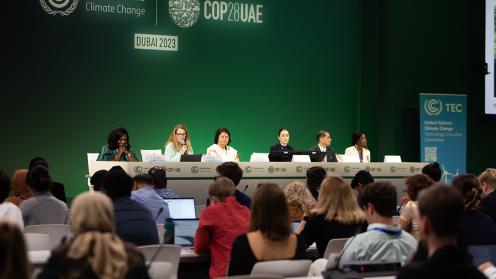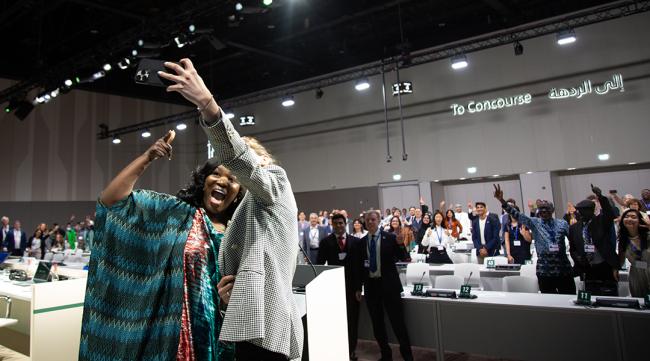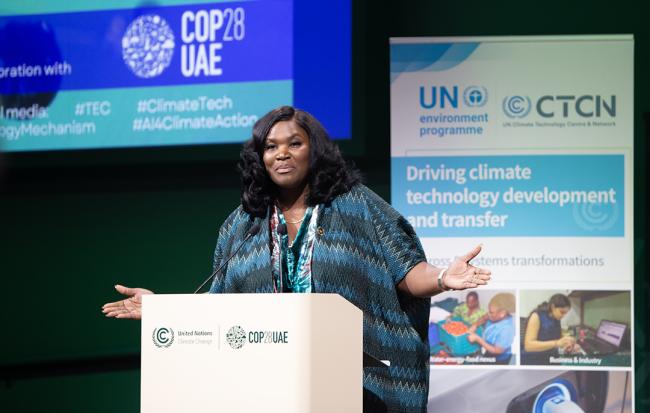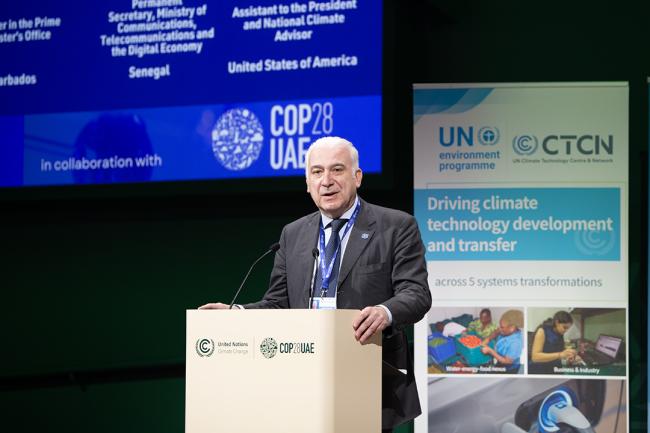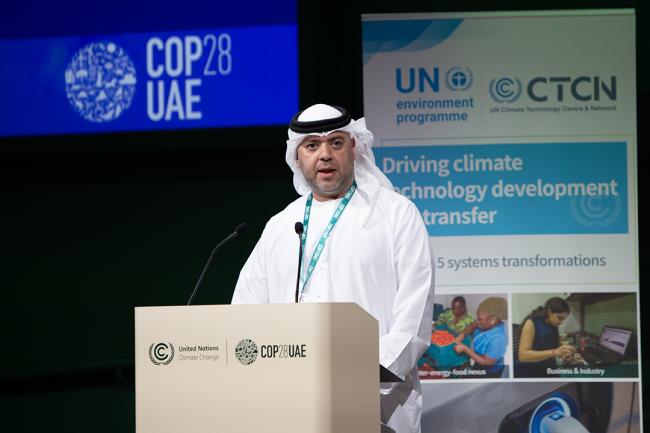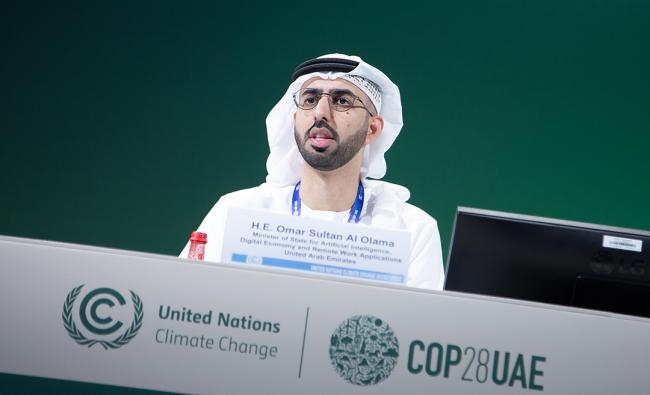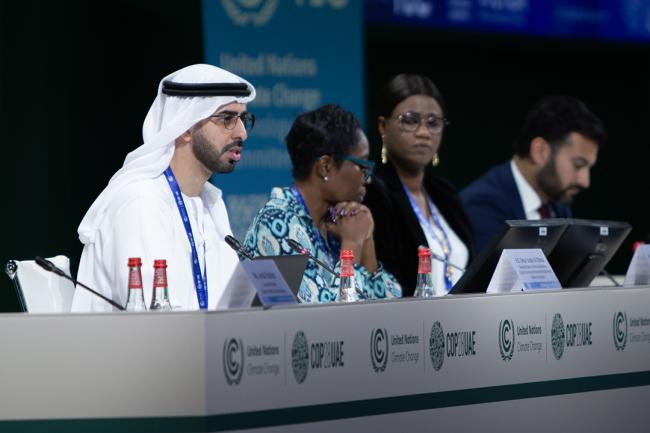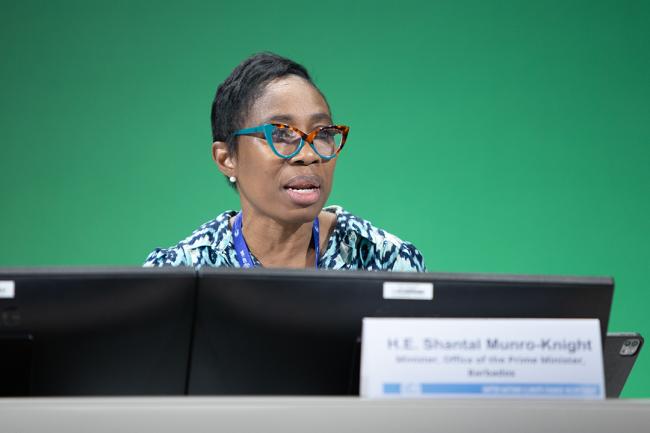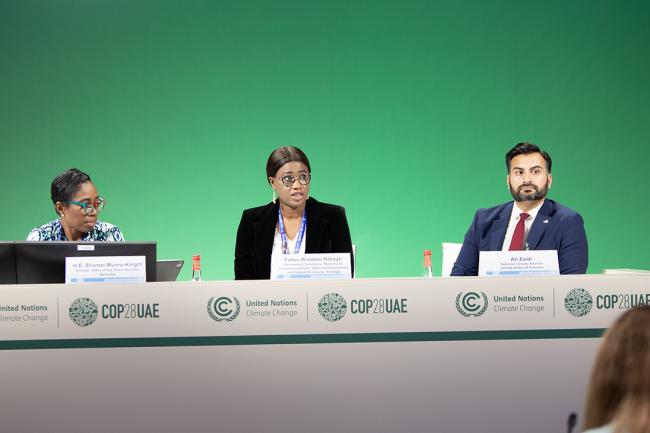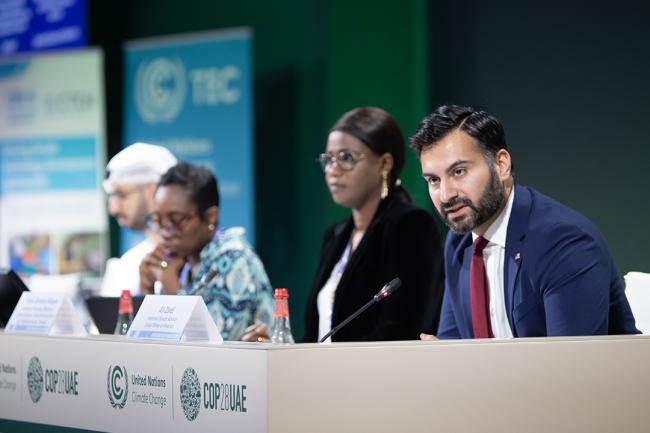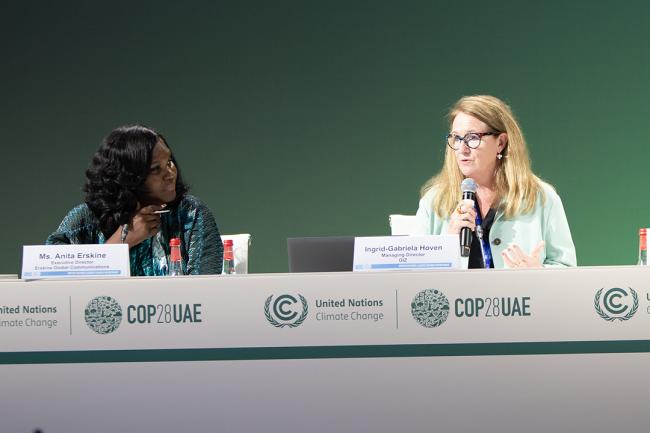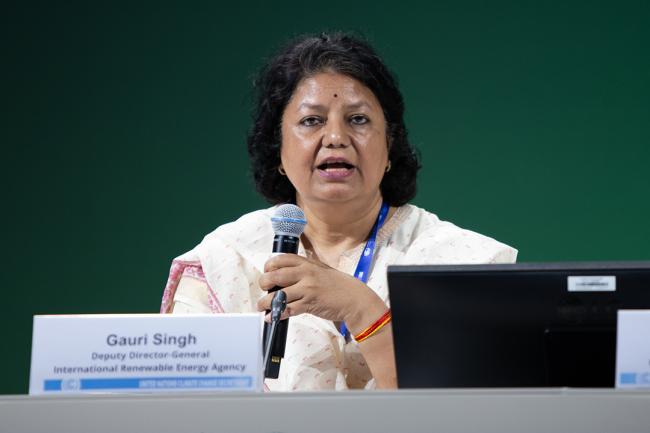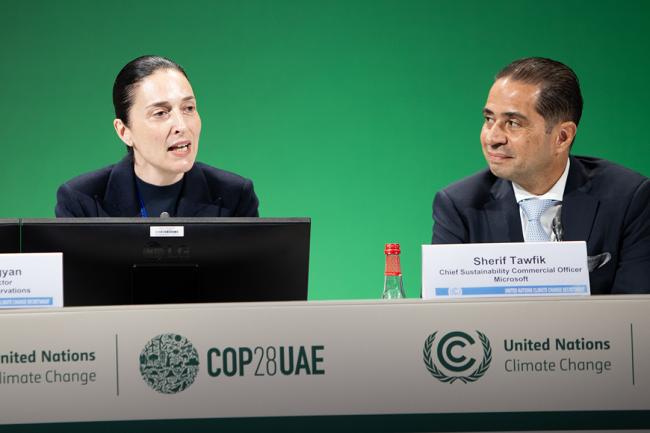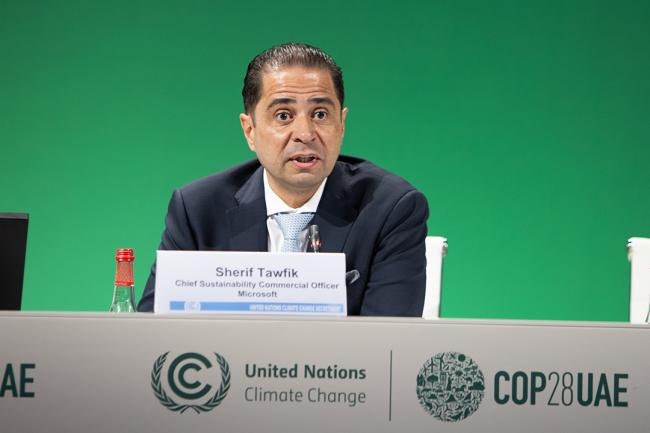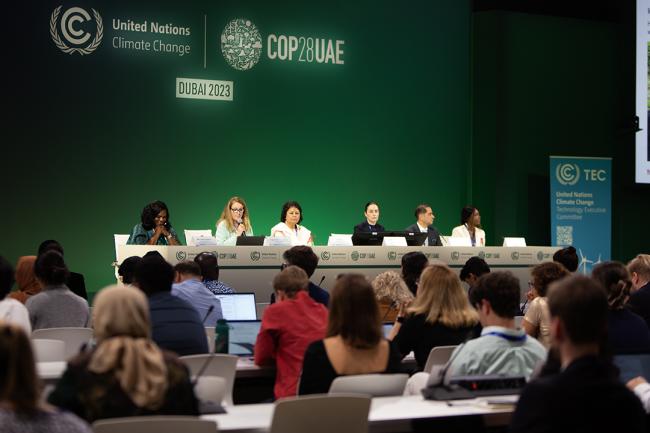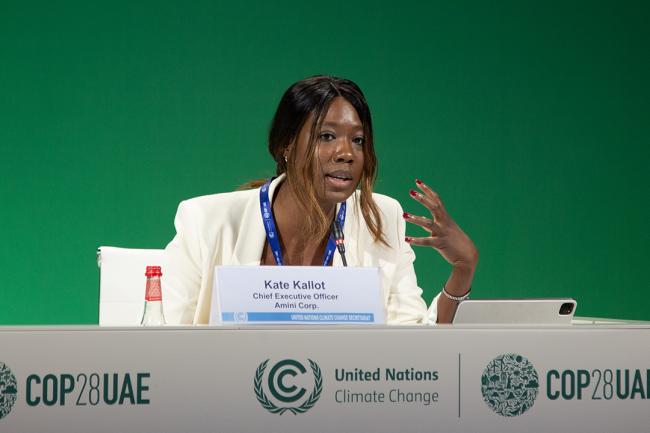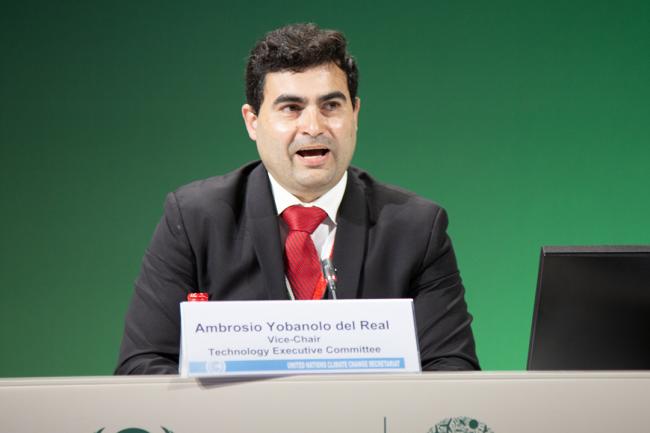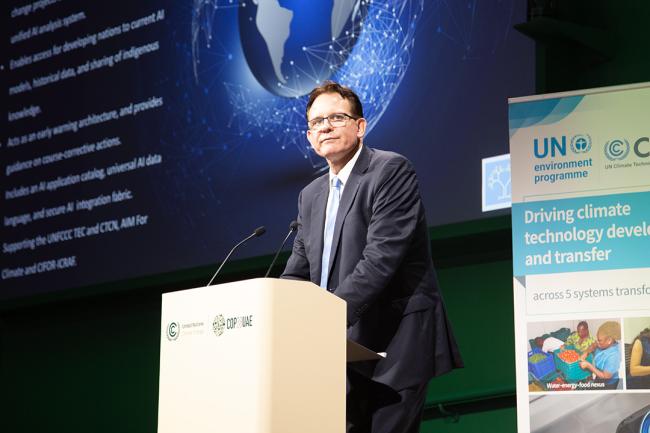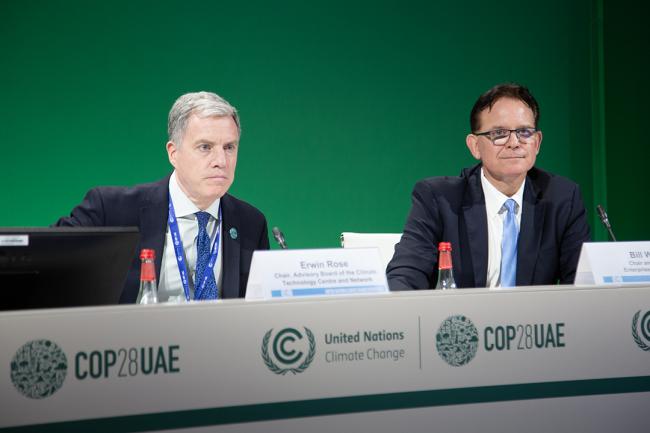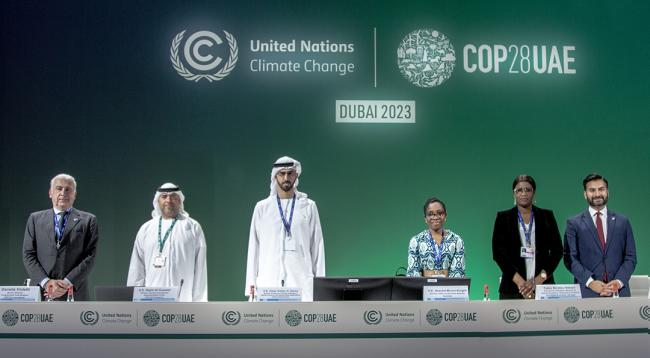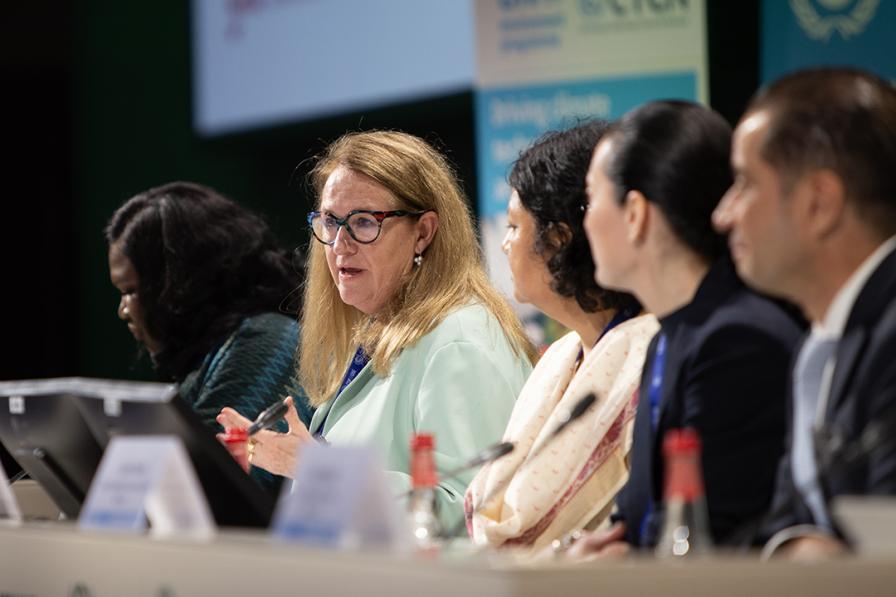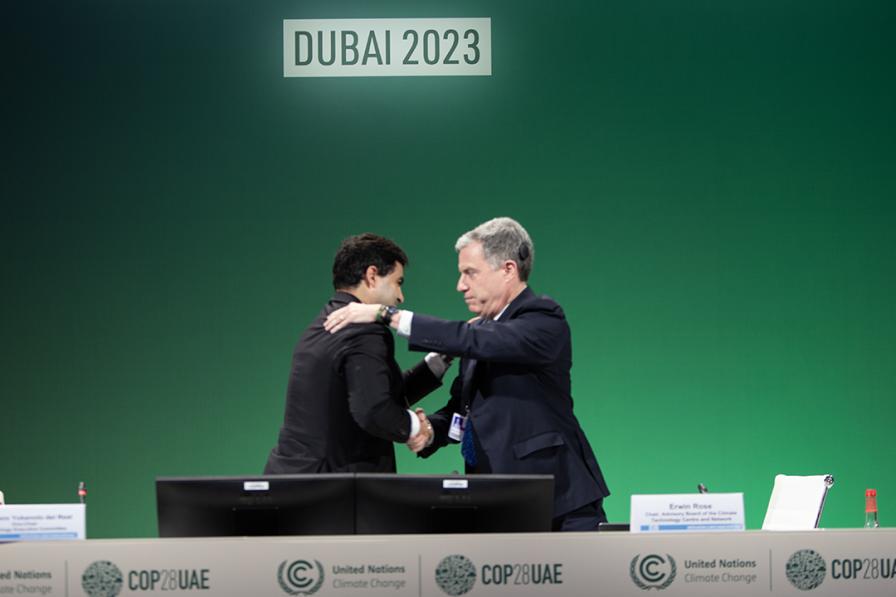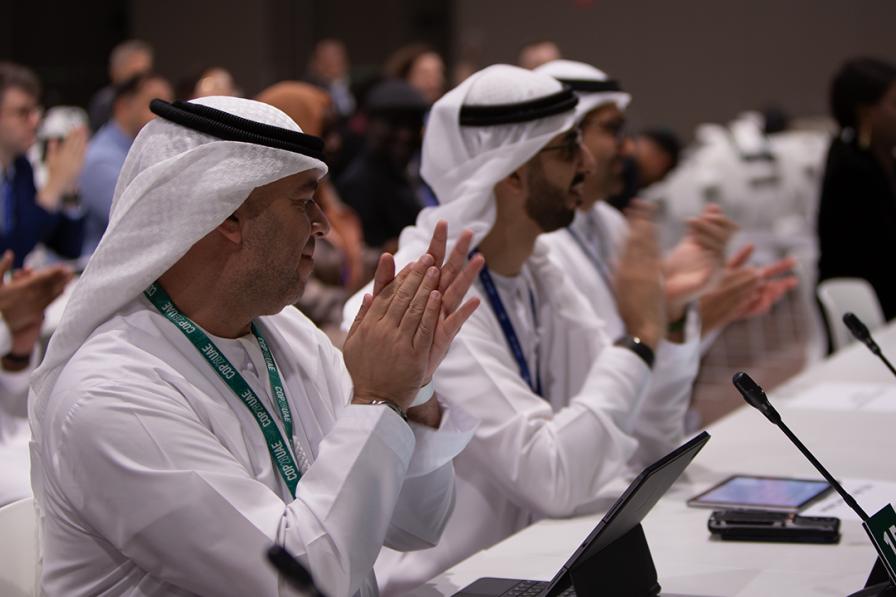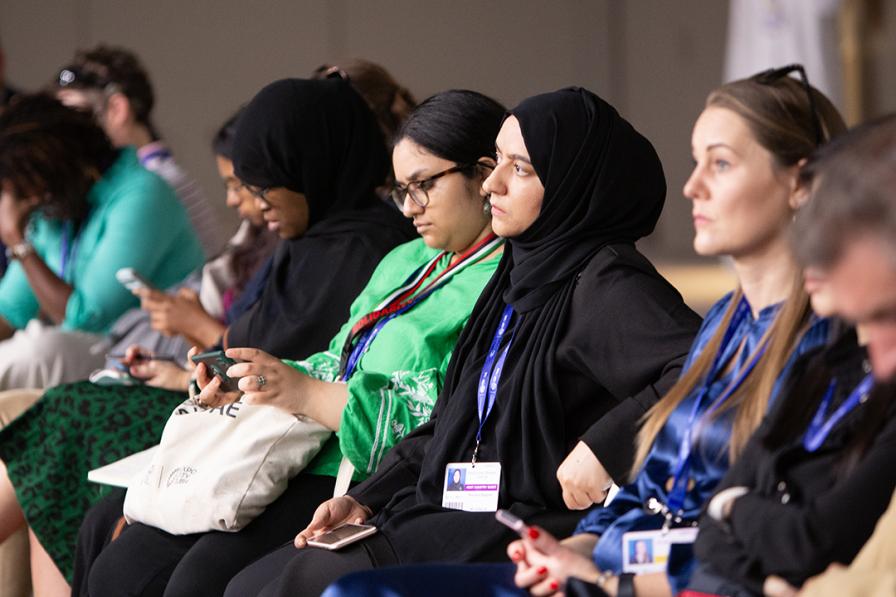About
As artificial intelligence (AI) advances by leaps and bounds, this high-level event weighed the promises and potential perils of AI in the climate fight and launched a global challenge to deliver AI solutions for developing countries.
The rapidly developing capabilities of artificial intelligence (AI) hold the potential to reshape our uses of technology. For example, the UNFCCC Technology Mechanism Initiative on Artificial Intelligence for Climate Action (#AI4ClimateAction) is exploring how AI might transform climate adaptation and mitigation solutions, particularly in least developed countries (LDCs) and small island developing States (SIDS). In light of this, a high-level event opened a dialogue on the potential for AI to accelerate implementation of the Paris Agreement.
Moderator Anita Erskine, Executive Director, Erskine Global Communications, opened the event with a show of hands of people in the room who do not understand AI, promising that by the end of the event everyone would not only understand AI but also how it can influence climate action.
In welcoming remarks, Daniele Violetti, UNFCCC, stressed the potential of AI to predict climate impacts and improve the dynamic management of energy supply and demand, though the energy impact of AI itself also is of significant concern.
Majid Al-Suwaidi, Director-General, COP 28 Presidency, United Arab Emirates (UAE), pointed to how AI is revolutionizing society due to its abilities to process, analyze, monitor, and predict, all of which have applications in the climate fight. He noted that AI can enhance the efficiency of energy systems and inform policy decisions, but that it requires responsible development and appropriate regulations and must be transferred to developing countries.
In a round of high-level remarks, Omar Sultan Al Olama, Minister of State for Artificial Intelligence, Digital Economy and Remote Work Applications, UAE, stressed AI as essential for remaining within the 1.5°C target under the Paris Agreement, as it is able to crunch massive data sets and provide insights in real time. He urged flipping the model of data collection, from collecting it for private profit to incentivizing companies to making it publicly available to inform decision-making processes around climate action.
Shantal Munro-Knight, Minister in the Prime Minister’s Office, Barbados, underscored the need for basing AI interventions on the correct ethos by designing them for the purpose of benefiting the most vulnerable communities. This requires co-creation and co-design based on local knowledge and ownership, as well as the creation of “nodes of best practices” that can be replicated and scaled up.
Fatou Binetou Ndiaye, Ministry of Communications, Telecommunications and the Digital Economy, Senegal, highlighted Senegal’s 2020-2025 strategy to provide “digital for all” by reducing digital divides, especially for those populations who are most vulnerable to climate change.
Ali Zaidi, Assistant to the President and National Climate Advisor, US, highlighted President Biden’s executive order focusing on de-risking emerging technologies and developing standardized protocols to advance verifiability and fact-based tools. He noted a range of risks, from cybersecurity to the emissions caused by powering AI, and the importance of creating workforces with the skills to harness the power of AI.
In the next panel, focusing on examples of on-the-ground AI applications, Ingrid-Gabriela Hoven, Managing Director, GIZ, highlighted principles of local empowerment, equitable access, and strong governance frameworks. She pointed to projects in Indonesia and Kenya using AI to protect forests and predict crop yields, both of which involve local communities.
Gauri Singh, International Renewable Energy Agency, noted that by 2025 there will be 75 billion devices connected to power grids and that AI is needed to manage flows of electricity that are increasingly bidirectional, as in the case of Tesla batteries that both charge from and provide power to the grid.
Yana Gevorgyan, Secretariat Director, Group on Earth Observations, highlighted the use of remote sensing and AI to provide early warning systems, pointing to the example of flooding in Malawi that was predicted 15 days in advance, which allowed the evacuation of residents with no loss of life. Gevorgyan also noted work to provide early warning of slow-onset disasters, such as a project to protect socially vulnerable populations from extreme heat in urban areas. She highlighted the collaboration of the GEO and UNFCCC Technology Executive Committee (TEC) under the umbrella of the Early Warnings for All initiative. The initiative aims to highlight technology and innovation for disaster risk knowledge to ramp-up action and support for protecting the most vulnerable in the implementation era of the Paris Agreement.
Sherif Tawfik, Microsoft, stressed progress on the Sustainable Development Goals involves complex systems that must be analyzed. This requires not only the power of AI but building workforce capacity. He offered a five-point playbook: investing in AI; developing inclusive data infrastructures; minimizing resource use; advancing AI policy principles of security, transparency, fairness, and accountability; and building workforce capacity.
Kate Kallot, CEO, Amini Corp., stressed that AI innovation is not confined to the global North, but also can blossom in the global South with the inclusion of local communities. She highlighted Amini’s work to fill data gaps in Africa and to incorporate Indigenous practices into that data, as in projects enhancing cocoa sustainability in Ghana and crop yields in South Africa.
Following the examples, the #AI4ClimateAction Initiative and Enterprise Neurosystem launched the AI Innovation Grand Challenge to develop AI-powered climate solutions in developing countries. Ambrosio Yobanolo del Real, UNFCCC TEC, and Erwin Rose, Climate Technology Center and Network (CTCN), framed the challenge as a capacity-building opportunity that can accelerate climate action in safe and responsible ways. Bill Wright, Chair and Founder, Enterprise Neurosystem, emphasized that the challenge will build a portfolio of applications as a global public good for developing countries and the winner will be showcased at COP 29.
Organizers: UNFCCC TEC, CTCN, COP 28 Presidency
Contact: Moritz Weigel | MWeigel@unfccc.int
For more information: https://unfccc.int/ttclear/tec
To receive free coverage of global environmental events delivered to your inbox, subscribe to the ENB Update newsletter.
All ENB photos are free to use with attribution. For this COP 28 side event, please use: Photo by IISD/ENB | Angeles Estrada Vigil
